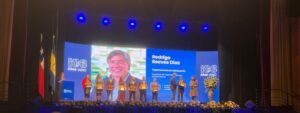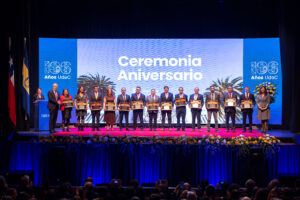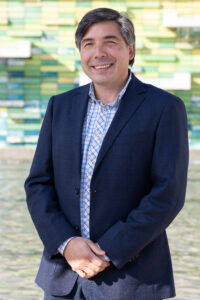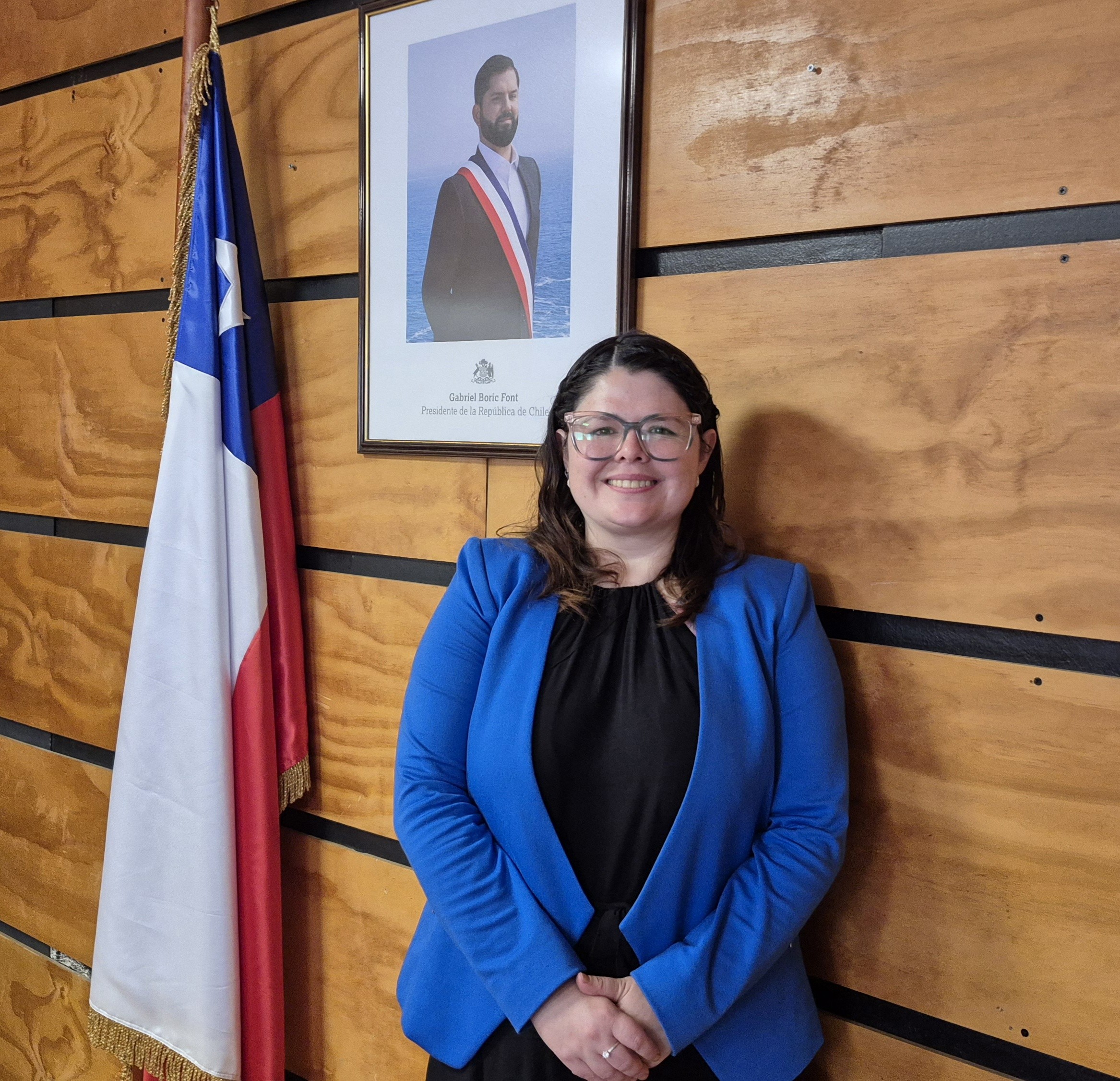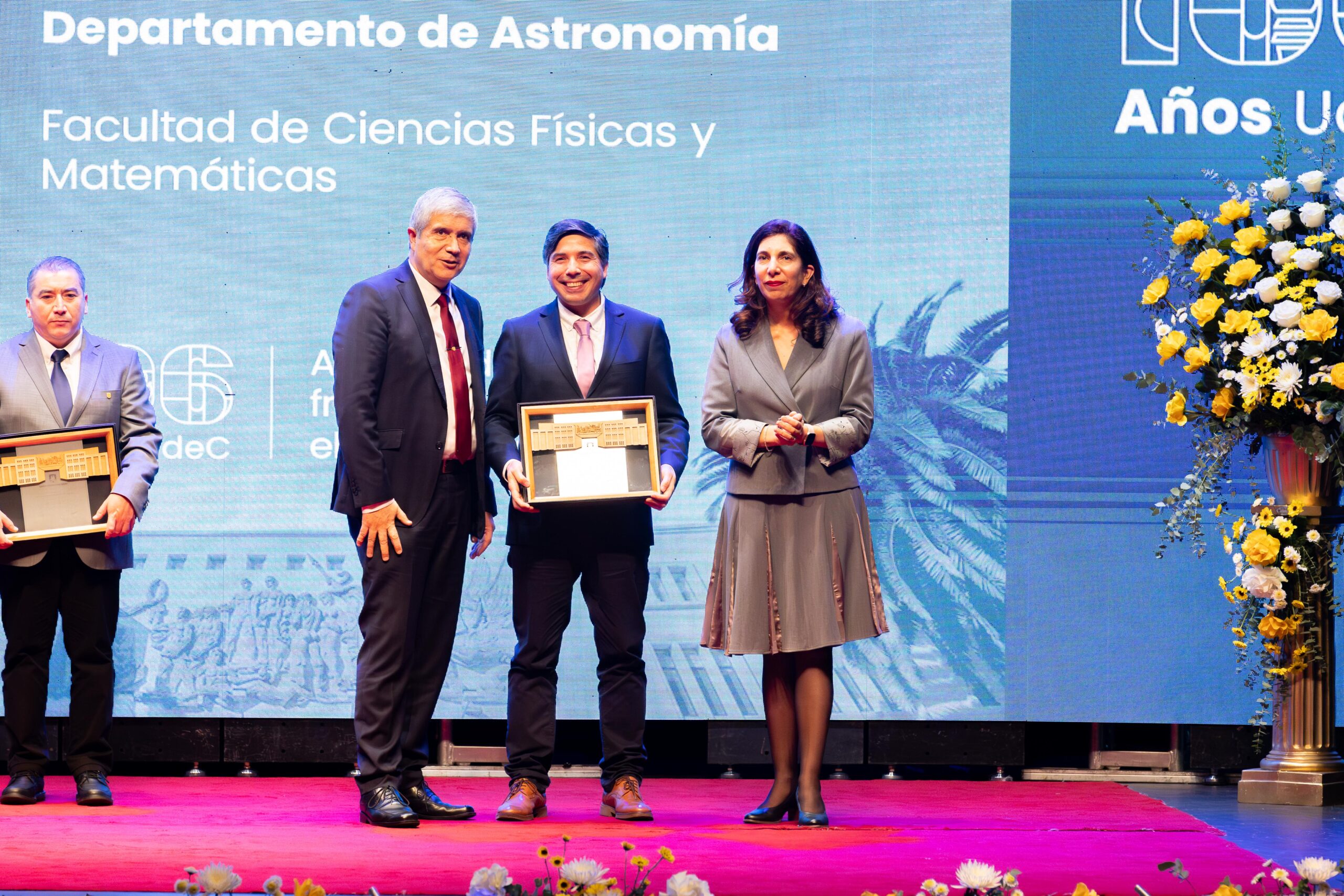
CATA Associate Researcher appointed Full Professor at Universidad de Concepción
Rodrigo Reeves, PhD in Engineering, Associate Researcher at CATA and academic at Universidad de Concepción, was appointed full professor on a new anniversary of the university.
As part of the celebrations for a new anniversary, the Universidad de Concepción (UdeC) recognized the academics who in 2025 reached the rank of Full Professor, the highest within its teaching staff. Among them was distinguished Dr. Rodrigo Reeves, Associate Researcher of the Center for Astrophysics and Related Technologies (CATA) and academic of the university, who received this appointment in a ceremony held at the UdeC Theater.
Professor Reeves is an Electrical Engineer and holds a PhD in Electrical Engineering from the Universidad de Concepción. He has dedicated his career to the development of radio astronomy and astronomical instrumentation, with postdoctoral training at the prestigious California Institute of Technology (Caltech). He currently participates in the Ministerial Advisory Commission on Areas of Scientific and Research Value for Astronomical Observation of the Ministry of Science, and serves as professor of the Department of Astronomy of the UdeC, head of career and director of the laboratory CePIA (Center for Astronomical Instrumentation).
His work has been marked by leadership in cutting-edge technological projects, both nationally and internationally, especially in the field of millimeter and submillimeter waves. In addition to his outstanding scientific career, he has received distinctions such as the IEEE MTT-S Best Paper Award and the Belt and Road Young Scientist Award. He currently leads the Leighton Chajnantor Telescope (LCT) project and actively collaborates in global scientific networks.
The researcher of our Center deeply valued this new milestone in his academic career. “I consider this appointment quite significant both in my personal and academic development. It is a recognition to the trajectory where everything weighs: teaching, research, student training and linkage with the environment. I also receive this recognition from my alma mater, which has a special flavor. It is quite exciting, since it is a place where I have been able to participate in different facets, both as a student and as a professor,” said Reeves.
Regarding the impact that this recognition can have on his role within CATA, the engineer emphasized that it reinforces the prestige and projection of the center. “It validates the excellence of the scientific staff and attracts international collaborations. It also enhances the Center’s capacity to lead high-impact projects and makes it possible to apply for competitive funds that require demonstrating a consolidated track record,” he explained.
For the researcher, this new academic role also opens opportunities to strengthen the training of new generations and deepen links with foreign centers. “It will generate synergies with other universities, both in training and student mobility and in joint participation in projects. This will consolidate CATA’s leadership and influence at national and international level,” he concluded.
Credits: Photographs Universidad de Concepción.
Recent news
-
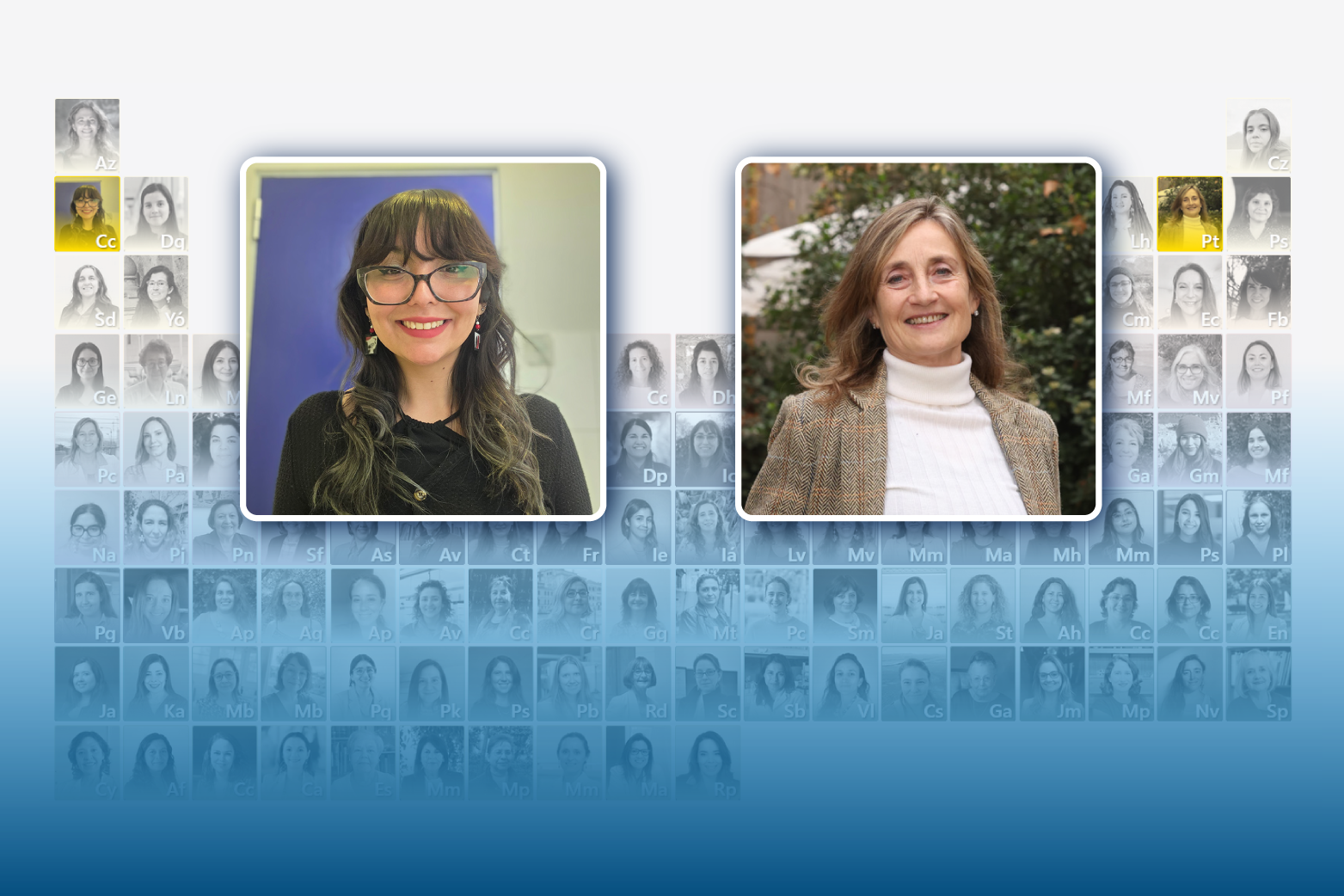 Publicado el: 17/02/2026The National Congress Library highlights CATA researchers in its second edition of Chilean Women Scientists
Publicado el: 17/02/2026The National Congress Library highlights CATA researchers in its second edition of Chilean Women Scientists -
 Publicado el: 11/02/2026Science with a woman’s face: gaps, vocations, and pending challenges
Publicado el: 11/02/2026Science with a woman’s face: gaps, vocations, and pending challenges -
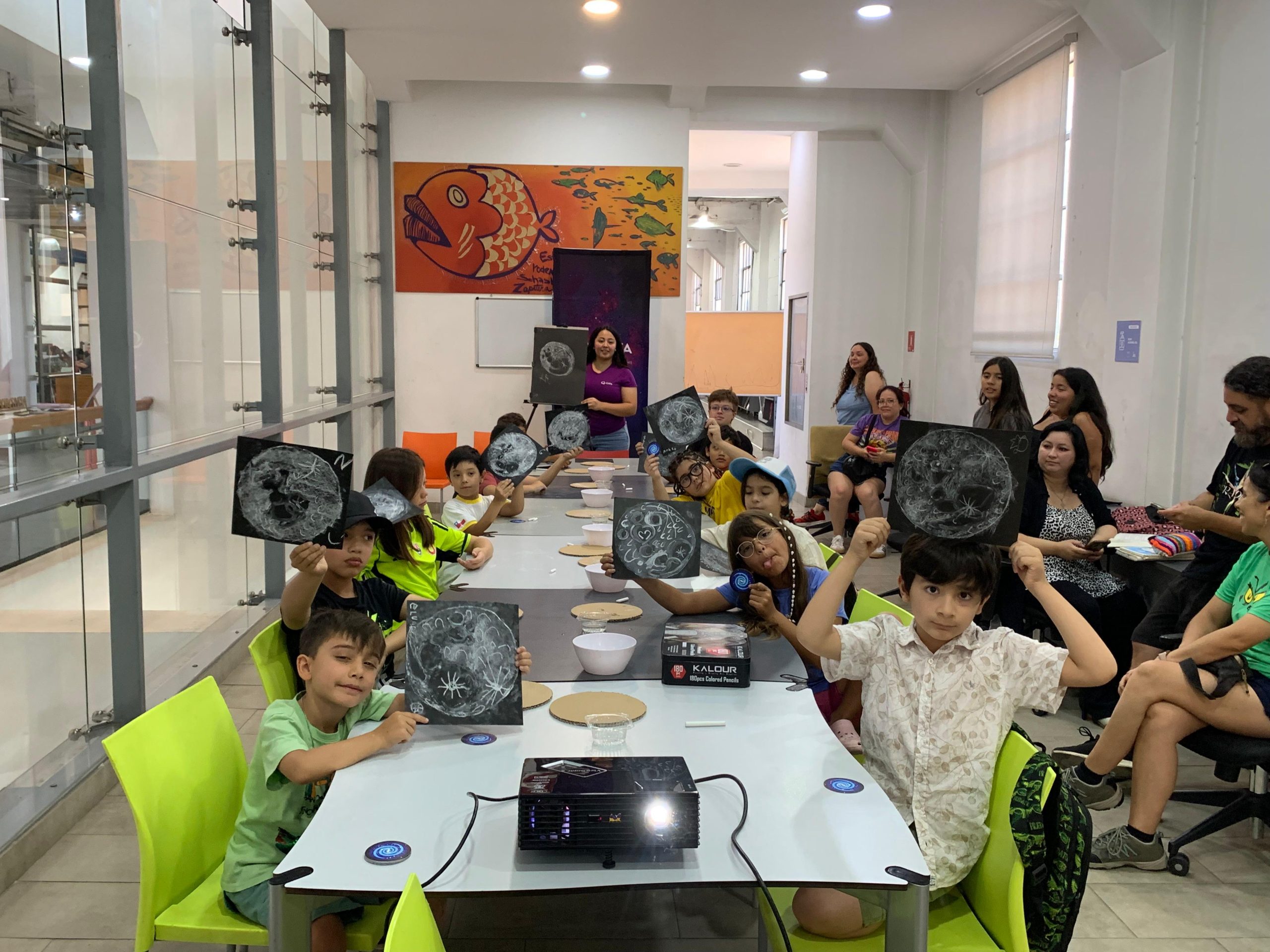 Publicado el: 09/02/2026Astronomy Day was held at the Santiago Library
Publicado el: 09/02/2026Astronomy Day was held at the Santiago Library -
 Publicado el: 30/01/2026Looking ahead to the next five years: Galaxies Area meets to share progress and strengthen research
Publicado el: 30/01/2026Looking ahead to the next five years: Galaxies Area meets to share progress and strengthen research -
 Publicado el: 29/01/2026Will Earth have two moons until 2083? The idea behind object 2025 PN7
Publicado el: 29/01/2026Will Earth have two moons until 2083? The idea behind object 2025 PN7
Categories list
- Acknowledgments 24
- Astrobiology 8
- AstroCluster 1
- Black holes 19
- Corporativo 62
- Cosmology 5
- Descubrimientos 25
- Disclosure 78
- Exoplanets 15
- Extension 6
- Galaxies 23
- Galaxies formation 7
- Inter y Transdisciplina 4
- Local Universe 17
- Publications 7
- Sin categorizar 36
- Solar System 24
- Stellar formation 8
- Technology 18
- Technology Transfer 20
